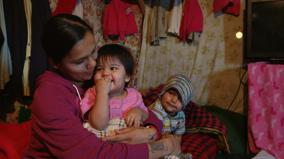PASSER
Accessibilité

Alanis Obomsawin (62)

Alanis Obomsawin
L’une des plus éminentes réalisatrices autochtones du monde, Alanis Obomsawin a commencé sa carrière comme chanteuse et conteuse avant d’en arriver au cinéma en 1967 à titre de consultante à l’ONF. Son œuvre extraordinaire — cinquante films, et elle tourne encore — comprend des documentaires phares comme Les événements de Restigouche et Kanehsatake - 270 ans de résistance. La cinéaste abénaquise a reçu d’innombrables distinctions internationales, et ses films ont fait l’objet d’une rétrospective au Museum of Modern Art de New York en 2008. « Toute ma vie, je me suis principalement intéressée à l’éducation, parce que c’est par l’éducation qu’on se développe, qu’on fait l’apprentissage de la haine ou de l’amour », déclare Mme Obomsawin.




























































